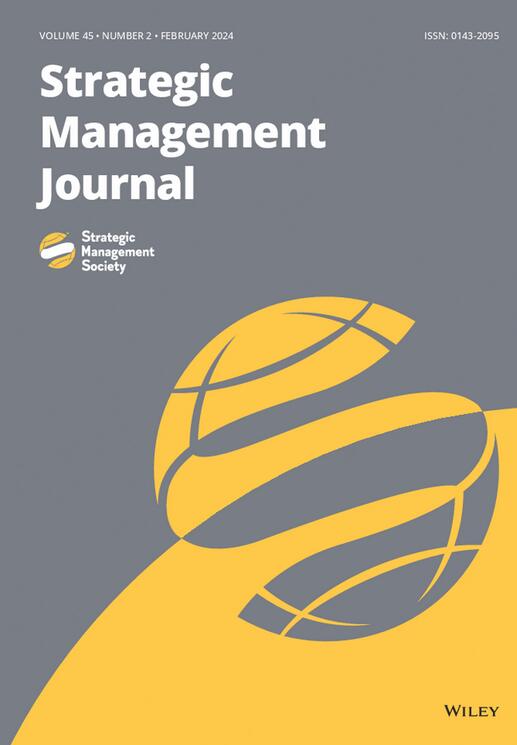Coaxing corporations: Enriching the conceptualization of governments as strategic actors
IF 7.2
1区 管理学
Q1 BUSINESS
引用次数: 0
Abstract
Abstract Research Summary Little is known about how governments secure discrete resources from global corporations over which they have limited direct control. Utilizing declassified archival sources, we examine how the UK government influenced Moody's and Standard & Poor's to provide the highest possible credit ratings in 1978, despite the UK receiving an International Monetary Fund bailout 2 years earlier. We develop a process model to explain how democratic government officials employ distinctive processes to enable and facilitate a nonmarket approach of corporate coaxing to influence corporations' decision making. We thereby enrich the concept of governments as a strategic actors by illuminating how officials act to secure resources when in a position of dependence. Managerial Summary We sought to understand how governments attempt to influence corporations' decision making when they have limited direct control over these corporations. We examined the historical case of the UK government seeking to influence Moody's and Standard and Poor's. In this case, we identified the distinctive strategy of corporate coaxing to explain how government officials navigate the distinctive constraints, and leverage the unique strengths, of their democratic state, to exert influence on private and global corporations. Our findings show how governments can be more active stakeholders in corporate activity than commonly assumed, as their subtle influence can extend beyond state policies or regulations.哄骗企业:丰富政府作为战略行动者的概念
摘要研究总结对于政府如何从他们直接控制有限的全球公司那里获得离散资源,人们知之甚少。利用解密的档案来源,我们研究了英国政府如何影响穆迪和标准普尔。尽管英国在两年前接受了国际货币基金组织(imf)的救助,但它仍在1978年获得了最高的信用评级。我们开发了一个过程模型来解释民主政府官员如何采用独特的过程来实现和促进非市场的企业哄骗方法来影响企业的决策。因此,我们通过阐明官员在处于依赖地位时如何采取行动以确保资源,丰富了政府作为战略行动者的概念。我们试图理解政府在对公司的直接控制有限的情况下是如何试图影响公司的决策的。我们研究了英国政府试图影响穆迪(Moody’s)和标准普尔(Standard and Poor’s)的历史案例。在这种情况下,我们确定了企业哄骗的独特策略,以解释政府官员如何驾驭独特的约束,并利用其民主国家的独特优势,对私营和全球公司施加影响。我们的研究结果表明,政府在企业活动中可能比通常认为的更积极,因为它们的微妙影响可以延伸到国家政策或法规之外。
本文章由计算机程序翻译,如有差异,请以英文原文为准。
求助全文
约1分钟内获得全文
求助全文
来源期刊

Strategic Management Journal
Multiple-
CiteScore
13.70
自引率
8.40%
发文量
109
期刊介绍:
At the Strategic Management Journal, we are committed to publishing top-tier research that addresses key questions in the field of strategic management and captivates scholars in this area. Our publication welcomes manuscripts covering a wide range of topics, perspectives, and research methodologies. As a result, our editorial decisions truly embrace the diversity inherent in the field.
 求助内容:
求助内容: 应助结果提醒方式:
应助结果提醒方式:


